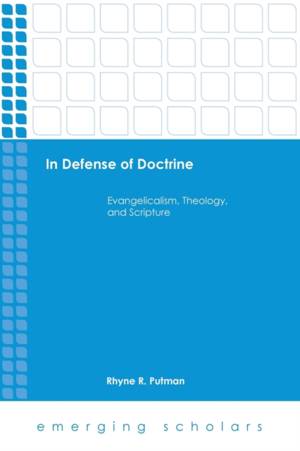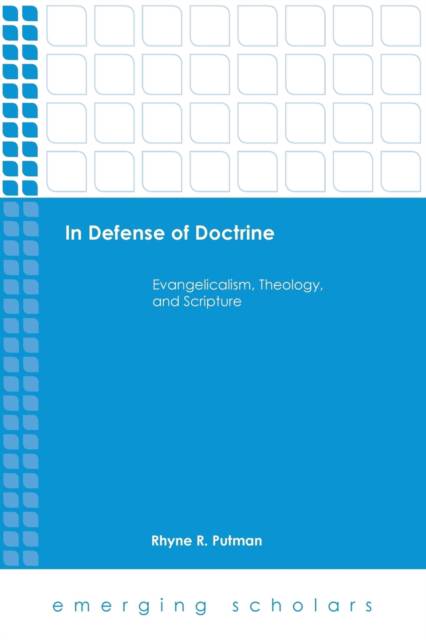
- Afhalen na 1 uur in een winkel met voorraad
- Gratis thuislevering in België vanaf € 30
- Ruim aanbod met 7 miljoen producten
- Afhalen na 1 uur in een winkel met voorraad
- Gratis thuislevering in België vanaf € 30
- Ruim aanbod met 7 miljoen producten
In Defense of Doctrine
Evangelicalism, Theology, and Scripture
Omschrijving
Questions surrounding the relationship of Scripture and doctrine are legion within the Protestant tradition. How can doctrine develop over time and maintain fidelity to the sacred text, especially for communities who cling to the Reformation principle of sola scriptura? Does not an appeal to contemporary, constructive theology belie commonly held Protestant and Evangelical convictions about the sufficiency of Scripture? Does admission and acceptance of doctrinal development result in a kind of reality-denying theological relativism? And in what way can a growing, postcanonical tradition maintain a sense of continuity with the faith of the New Testament?This study is an apologetic for the ongoing, constructive theological task in Protestant and Evangelical traditions. It suggests that doctrinal development can be explained as a hermeneutical phenomenon and that insights from hermeneutical philosophy and the philosophy of language can aid theologians in constructing explanatory theses for particular theological problems associated with the facts of doctrinal development, namely, questions related to textual authority, reality depiction, and theological identity. Joining the recent call to theological interpretation of Scripture, Putman provides a constructive model that forwards a descriptive and normative pattern for reading Scripture and theological tradition together.
Specificaties
Betrokkenen
- Uitgeverij:
Inhoud
- Aantal bladzijden:
- 256
- Taal:
- Engels
- Reeks:
Eigenschappen
- Productcode (EAN):
- 9781451472165
- Verschijningsdatum:
- 1/06/2015
- Uitvoering:
- Paperback
- Formaat:
- Trade paperback (VS)
- Afmetingen:
- 152 mm x 229 mm
- Gewicht:
- 635 g

Alleen bij Standaard Boekhandel
Beoordelingen
We publiceren alleen reviews die voldoen aan de voorwaarden voor reviews. Bekijk onze voorwaarden voor reviews.










